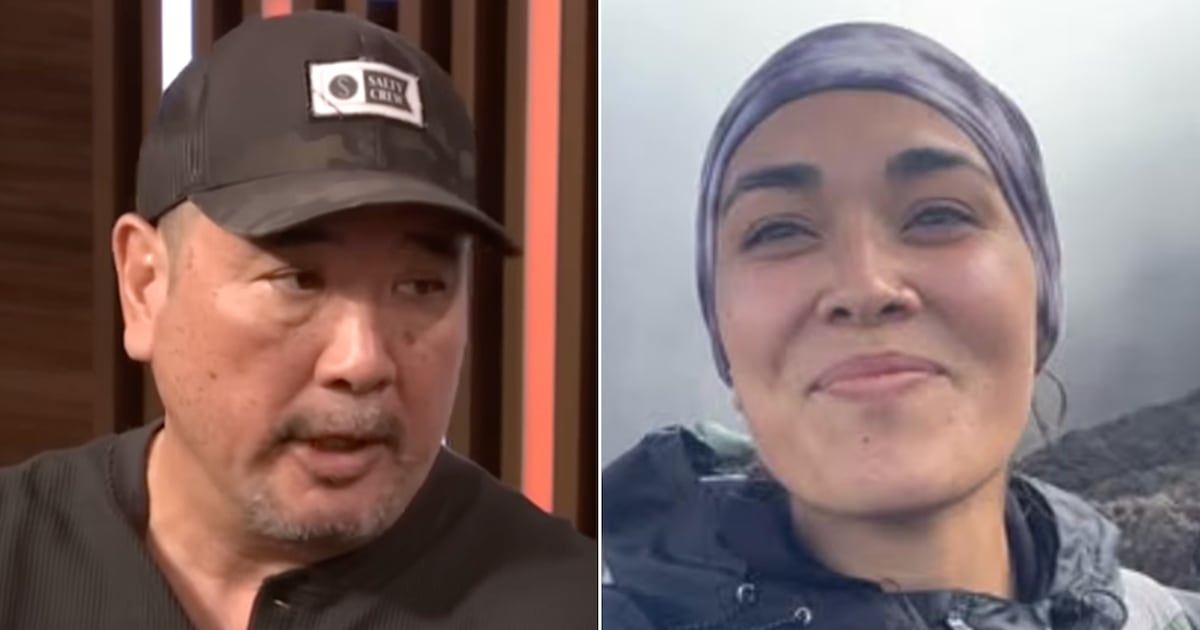Bob Bauer has been counsel to presidents and campaigns. His clients included Barack Obama and Joe Biden. In 2020, he played Donald Trump in debate prep. He was “as personally insulting and unhinged as Trump can be,” he writes in The Unraveling, his latest book.
Think politics 24-7-365, with stellar Democratic connections.
Bauer is married to Anita Dunn, a veteran of the Obama White House and a presence in the Biden West Wing.
ADVERTISEMENT
Way back at the end of the 1990s, during the impeachment of Bill Clinton, Bauer counseled Sen. Tom Daschle (D-SD), the Senate majority leader.
In 2018, after 35 years, Bauer left Perkins Coie, the go-to law firm for Democratic campaigns. He teaches law at New York University. But he witnessed the first Trump presidency and dreads a second.
Under the subtitle Reflections on Politics without Ethics and Democracy in Crisis, Bauer offers a readable mixture of lament and autobiography. It is “part memoir, part rumination,” in his words. He was in the room where things happened, but play-by-play is limited. A serious lawyer, Bauer reveals far less than he knows. The Unraveling is no kiss-and-tell, but it is informative.
Bauer decries where politics can lead in the absence of ethics and respect for institutions. Considering lawyers’ place in government, he draws a straight line between Richard Nixon and Trump. The rise and fall of John Dean, Nixon’s White House counsel who went to jail for his part in the Watergate cover-up, was reflective of what ailed that presidency.
As for Trump, he “preferred his lawyers to be enablers, to get him what he wanted,” Bauer observes. “His model is Roy Cohn, the infamous lawyer who worked hand in glove with vicious demagogue Joe McCarthy during the communist witch hunts of the 1950s.”
Years before becoming a convicted felon himself, Trump made Cohn his lawyer of choice as he carved out a niche in New York real estate. Until Cohn was brought down by AIDS. Then, Trump abandoned him.
“Donald pisses ice water,” Cohn reportedly said before he died.
Bauer sees lawyers more recently retained by Trump—Rudy Giuliani, Jeffrey Clark and Sidney Powell—as cut from the same rancid cloth. Powell pleaded guilty in Georgia, to charges arising from Trump’s election subversion. Giuliani and Clark labor under indictment. Giuliani is bankrupt too.
Elsewhere, Bauer acknowledges that once precedent has been set, it is hard to reset the clock.
Take lawfare. Back in May 2000, House Democrats and Bauer filed a private racketeering (RICO) lawsuit against Rep. Tom DeLay (R-TX), then House majority whip, accusing him of extortion, racketeering and money laundering.
“These are not random acts of coercive fundraising,” Bauer said then. “This is a systematic effort to build a political organization based on illicit fundraising and the use of organizations to conceal that money.”
Less than a year later, the case settled. Both sides claimed victory.
“We had cast DeLay as a partisan John Gotti,” Bauer admits. He voices “mixed feelings” about the suit.
“The criticism we faced, for a major escalation in the partisan conflict, had merit, and we did not have the most convincing response.”
Now he tells us.
DeLay eventually earned fame, if not fortune, on Dancing With the Stars. So did Giuliani.
Still, it appears Bauer has learned a lesson: he advises Democrats against packing the U.S. Supreme Court—that is, expanding its size in response to Trump’s installation of three right-wingers—if they ever see a chance to do so.
The temptation would be strong. Democrats and Republicans “play the norm-busting game,” Bauer observes, because “it is intolerable that one side would allow the other to play it and not answer in kind.”
The Clinton impeachment yielded to two Trump impeachments, which begat investigations of Joe Biden and his family and the impeachment of Alejandro Mayorkas, the secretary of homeland security.
It doesn’t stop there. The Senate Finance Committee, held by Democrats, is poised to investigate Jared Kushner, Trump’s son-in-law, and his company over funds from Gulf states.
Elsewhere, Bauer takes Al Gore’s 2000 presidential campaign to task for lying about the voting record of Sen. Bill Bradley (D-NJ), a rival for the Democratic nomination.
“Gore not only egregiously misrepresented Bradley’s position, but he did so citing a vote on a bill that his own administration had originally opposed,” Bauer writes.
“The press covering the contest saw this as a failure of the Bradley campaign. It was also impressed with the blood-toothed ruthlessness of the Gore operation. A winner, that Gore.”
Ouch.
During the primary, Bauer represented Bradley. After the convention, Gore became a client.
Yet when it came to the denouement of the 2000 election and the Supreme Court decision that handed Gore a crushing defeat, Clinton’s vice president put country ahead of self. In January 2001, Gore presided over the counting of ballots and formally declared the election for George W. Bush.
Bauer expresses mixed sentiments about another vice president—Mike Pence—famous for presiding over the counting of ballots. But Bauer approves of Pence’s stand on Jan. 6, when Trump tried to stay in power but his VP refused to stop certification of Biden’s win.
“At a crucial moment, Pence took the decisive step of breaking with Trump and meeting his constitutional obligations, and did so when to have acted differently would have had grave and lasting consequences for the democracy.”
The Unraveling is more than an intellectual exercise. Bauer’s father arrived in the U.S. in 1940, from Austria, a refugee from Hitler’s Europe whose mother was shot dead by the Nazis. Bauer describes his dad as an ardent Democrat, one who took politics seriously and who cried when Nixon resigned and Gerald Ford succeeded. The republic and the Constitution had held.
These days, Bauer is not sanguine.
“The crisis of democratic politics is a crisis of public faith in politics,” Bauer writes. “To restore faith in government, the role of politics has to be defended.”







